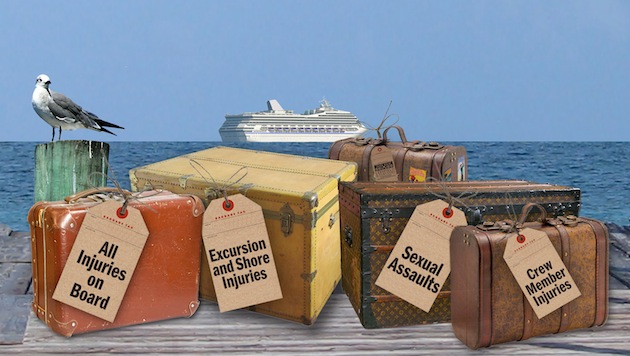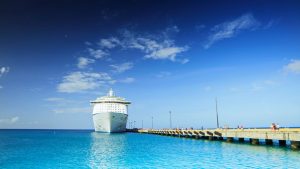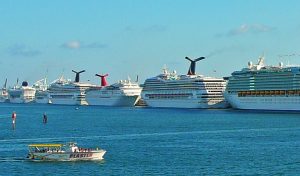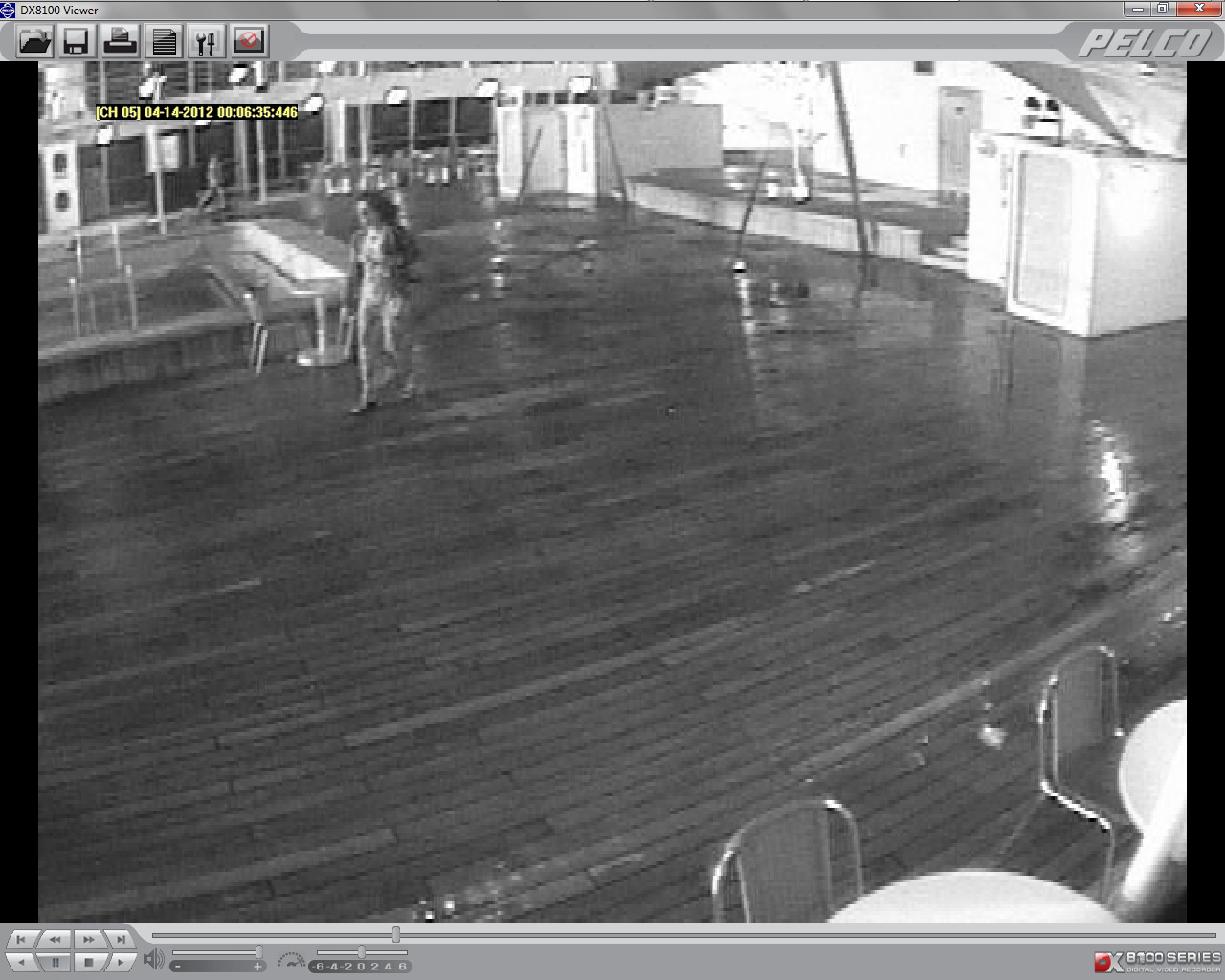When a passenger sustains an injury while on a cruise ship or while on a shore excursion purchased through the cruise line, a maritime law attorney must be contacted immediately so as to maximize the recovery of a potential personal injury claim or lawsuit, and more importantly to not jeopardize the investigation and fact-gathering process that must be done as early as possible and is absolutely critical in litigating against a cruise line.
 Most passengers feel safe at sea and are confident that, whichever activity they chose to purchase, the cruise line has done its homework and would not risk the safety and livelihood of its passengers. That misconception has led to countless incidents. Worse, it has led passengers to trusting the cruise line in rectifying their mistakes, or acts of negligence.
Most passengers feel safe at sea and are confident that, whichever activity they chose to purchase, the cruise line has done its homework and would not risk the safety and livelihood of its passengers. That misconception has led to countless incidents. Worse, it has led passengers to trusting the cruise line in rectifying their mistakes, or acts of negligence.
Contact a cruise ship injury attorney as soon as you board off the ship
Most, if not all, cruise lines have important procedural conditions that all passengers must know prior to embarking on a cruise. One of these procedural conditions is the time frame within which an injured person must act in order to file a claim against the cruise line. Cruise lines have uniformly imposed a one-year statute of limitations on any and all personal injury claims against them. If a lawsuit is not filed within one year of the incident which caused a person’s injury, that passenger’s claim will be barred forever. Not only that, Cruise Lines have also uniformly and arbitrarily imposed a six-month notification deadline.
The clock on your potential personal injury claim starts ticking the day the incident happens, and if you wait too long, your case, which could have been worthy of representation months prior, could be turned down simply because it is too late to act. You must protect yourself and do your due diligence by contacting a reputable maritime law attorney as soon as possible after you return home from the cruise.
Do not trust the Cruise Line’s claims management process
Many passengers will elect to resolve their injury claim on their own. They will contact the claims management department several weeks after the incident and attempt to obtain a recovery without any professional help. That is the second biggest mistake you can make.
Like any insurance company, the claims management department’s objective is to avoid compensating injured passengers. To achieve their mean, several tactics are employed in almost every single claim:
 First, the person assigned to your case will ask to obtain a statement from you about the incident. They will only ask questions that may put the blame on the injured person and not ask or inquire about any facts that may or may not show the cruise line’s negligence.
First, the person assigned to your case will ask to obtain a statement from you about the incident. They will only ask questions that may put the blame on the injured person and not ask or inquire about any facts that may or may not show the cruise line’s negligence.
Second, they will stall the claim’s process. By now, the incident occurred several weeks, if not a couple of months ago. They will ask that you provide a copy of all of your medical records, and medical bills, so the claims department can “evaluate” your damages. Some passengers are quick to obtain medical records, but most are not knowledgeable enough and several months will go by before the claims person will be in possession of your medical records and bills.
The next step is full denial. At that point, the cruise line has all of your records, it has an idea of the damages you have sustained in the incident, and it also knows how the incident happened. They will invariably tell you that the statement you have given to the ship’s doctor or the ship’s security staff is inconsistent with the statement you gave over the phone. Or they will tell you that the damages you are seeking are unrelated to the injury you claim you sustained in the incident. Or they will dispute the charges you claim you have incurred, or stress the fact that your health insurance paid for your bills and therefore your medical bills are irrelevant. Or they will insist on telling you that they need more time to make sure their investigation is concluded before they can either deny the claim, or make your an offer.
Continue reading
 The cruising industry has more than doubled in the last two decades. In the last 15 years alone, the number of cruise passengers has increased from 15 million to 30+ million. To satisfy the demand, cruise lines have built increasingly large ships that can host over 5,500 passengers and over 2,300 crew-members. Consequently, the number of injuries sustained by passengers and crew-members has also increased. As a result, Leesfield & Partners’s general maritime attorneys have been retained to represent injured passengers and crew-members for the last 20 years.
The cruising industry has more than doubled in the last two decades. In the last 15 years alone, the number of cruise passengers has increased from 15 million to 30+ million. To satisfy the demand, cruise lines have built increasingly large ships that can host over 5,500 passengers and over 2,300 crew-members. Consequently, the number of injuries sustained by passengers and crew-members has also increased. As a result, Leesfield & Partners’s general maritime attorneys have been retained to represent injured passengers and crew-members for the last 20 years. Cruise Ship Lawyers Blog
Cruise Ship Lawyers Blog


 With the main cruise ship companies based in Miami, Leesfield & Partners has represented countless families of cruise passengers who lost their lives or who were gravely injured while on a cruise excursion. Whether
With the main cruise ship companies based in Miami, Leesfield & Partners has represented countless families of cruise passengers who lost their lives or who were gravely injured while on a cruise excursion. Whether  Cruise ships are now floating recreational and theme parks. Their activities range from basketball, tennis, dodge ball, to water slides, rock climbing, sky rides to jogging supplemented by exotic shore excursions. “The industry’s competitive nature has resulted in each cruise line adding more dangerous activities for passengers who are already exposed to shipboard negligence in the maintenance and care of walking surfaces and other pedestrian hazards,” according to Ira Leesfield, Chair of the American Association for Justice Resort Torts Litigation Group.
Cruise ships are now floating recreational and theme parks. Their activities range from basketball, tennis, dodge ball, to water slides, rock climbing, sky rides to jogging supplemented by exotic shore excursions. “The industry’s competitive nature has resulted in each cruise line adding more dangerous activities for passengers who are already exposed to shipboard negligence in the maintenance and care of walking surfaces and other pedestrian hazards,” according to Ira Leesfield, Chair of the American Association for Justice Resort Torts Litigation Group. In the last few months,
In the last few months, 



